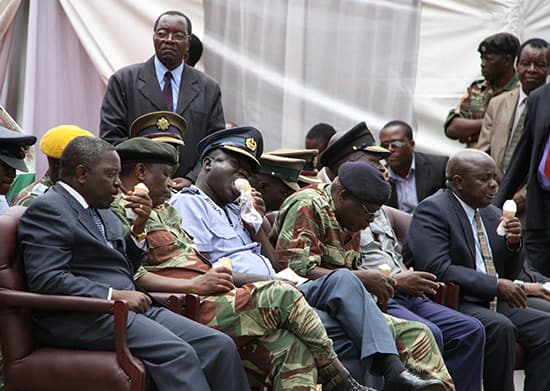Zimbabwe corruption institutionalised
Charles Mabhena
As corruption in Zimbabwe reach fever pitch, more questions are now being raised as to why the menace has taken that toll unabated, it could therefore be conclusive that the country’s system of governance supports corruption.
While some analysts have placed the blame on lack of political will on the part of the authorities in fighting it, be that as it may that can amount to the same thing, analysts believe.
A human rights activist and developmental advocate Virginia Muwanigwa says the problem with the Zimbabwean version of corruption is that it has been institutionalised to the extent that it now being viewed as a norm and hard to deal with.
“If any institution or system allows corruption, that fact alone compromises its attempts to deal with corrupt individuals,” she says.
She added that this is the major reason why the country today is facing challenges in dealing with persons that have been implicated.
As if to cement her school of thought, it has become clear among people that any position against the ill in the Zimbabwean context, have now been viewed by some quarters of the society as a way to settle political scores in the now highly factionalised ZANU PF, this is disturbing government business at the same time.
This has recently been proven by the way how a very senior government and ZANU PF official (VP Mphoko) have publicly testified that they cannot arrest corrupt ministers.
Meanwhile, Higher and Tertiary Education Science and Technology Development minister Jonathan Moyo, has refused to be cowed by the military’s threats in response to the allegations levelled against him and his partner in crime, Saviour Kasukuwere.
He implied that the army bosses should mind their own business, by not poking their noses in small issues while they failed to account for the 15 billion blood diamonds money which disappeared into thin air. The diamond fields in Chiadzwa was manned by military personnel who were armed to teeth, it is confusing as to how could that have had happened under the army’s watchful eye.
Participants at the National Economic Symposium, held in Harare recently, expressed grave concerns on how rampant corruption across the economic divide has hampered the ease of doing business in the country.
Zim News also recently reported on the Confederation of Zimbabwe Industries (CZI) and its findings on how corruption has been institutionalised, to the extent that out of the government’s 14 departments almost all have been involved. The Zimbabwe Corruption in Business Survey 2016 exposed the fact that requests or demands for bribes, is rife in the departments.













